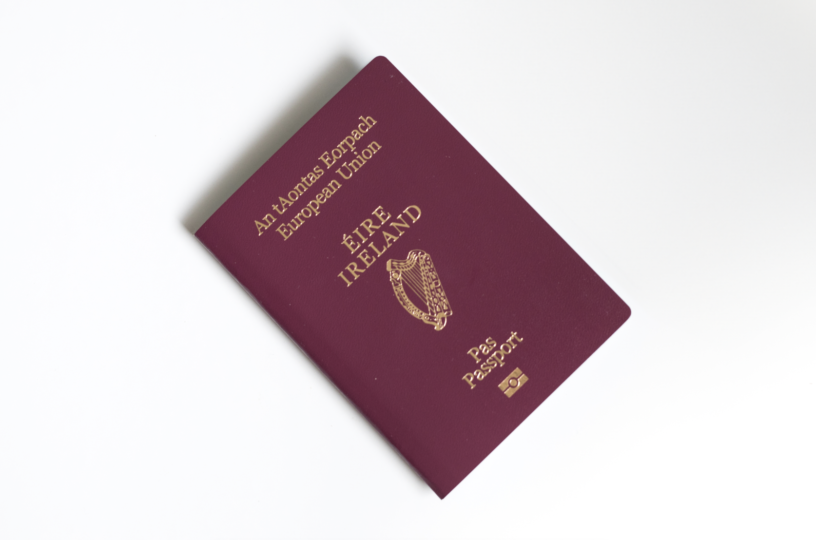
Examining deportations in a national security context: while cases in which national security grounds are relied on to revoke or deny residency are infrequent, they are also inevitable. These cases carry significant weight, requiring careful consideration by the Minister of Justice to make accurate decisions.
David Leonard BL examines the intricate balance between rule of law adherence and affording applicants sufficient opportunity to contest the reliance on national security reasons, while still considering legitimate State interests.
Principles of Reliance on National Security in a Deportation Context
For years, speaking the magic words “national security” would close down any judicial review. The courts have recently attempted to develop a principle of review of reliance on national security. The Strasbourg Court has developed the principles in Article 1 of Protocol No. 7 to the European Court of Human Rights so that they apply expressly to deporting lawful residents for national security reasons. Although our Supreme Court hasn’t yet addressed national security in the deportation context in Ireland, it has done so regarding naturalisation. And the European Court of Justice (ECJ) has outlined principles that protect procedural rights in the context of revocation of international protection on national security grounds.

Muhammad and Muhammad v. Romania
The general principles on the procedural rights of lawful residents in expulsion proceedings were summarised in Muhammad and Muhammad v. Romania [GC], no. 80982/12, 15 October 2020. At para. 122 of the judgment, there was an important reference to the principle of effectiveness as applied by the Strasbourg Court. This would seem to be the first time that the Court has expressly stated that the principle of effectiveness applies universally to all Convention provisions.
The Court found that that Article 1(1) of Protocol No. 7 requires in principle that people being deported for national security reasons:
- be informed of the relevant factual elements that have led the competent domestic authorities to consider that they represent a threat to national security, and
- be given access to the content of the documents and the information in the case file on which those authorities relied when deciding on deportation.

A.P. v. Minister for Justice
The Irish Supreme Court considered the extent to which reasons must be given for the refusal of naturalisation on national security grounds, in A.P. v. Minister for Justice [2019] IESC 47, [2019] 3 I.R. 317. The Court determined that the Minister could refuse to give more detailed reasons on national security grounds only by establishing that the entitlement to more detailed reasons was impaired only to the minimum extent necessary to secure legitimate State interests: see para. 65, p. 340, of the judgment of Clarke C.J. and para. 133, p. 367, of the judgment of O’Donnell J.
It would seem to follow from A.P. that where the Minister relies on national security to revoke or refuse to renew residency, the details of the national security grounds must be as reasoned as possible. If full reasons cannot be given because of legitimate State interests, the reasoning deficit must impair the right to reasons to the minimum extent necessary. This would involve the putting in place of a process going beyond the Minister assessing for herself how much of the relevant material can or cannot legitimately be disclosed. It is likely that there would have to be a facility for some type of independent assessment of the extent to which it is necessary to impair the right to reasons of the person concerned.
F.S. v. Croatia
The Strasbourg Court again considered Article 1 of Protocol No. 7 in the context of national security deportation in F.S. v. Croatia, no. 8857/16, 5 December 2023. Interestingly, the applicant lodged his application to the European Court of Human Rights before the conclusion of the domestic proceedings. The Croatian Government objected to the admissibility of the application, contending that it was premature. The admissibility objection was rejected because the Strasbourg Court allows the last stage of a domestic remedy to be reached after the application has been lodged but before its admissibility has been determined.
The Strasbourg Court concluded that having regard to the proceedings as a whole and taking account of the margin of appreciation afforded in national security matters, the limitation of the applicant’s procedural rights were not counterbalanced in the domestic proceedings so as to preserve the very essence of those rights and protect him against arbitrariness. Accordingly, there was a violation of Article 1 of Protocol No. 7.

The position in Luxembourg
In GM v. Országos Idegenrendészeti Főigazgatóság and Others (C-159/21, EU:C:2022:708), an international protection case, the ECJ concluded that the determining authority cannot validly confine itself to giving effect to a decision, adopted by another authority, which is binding on the former authority under national legislation, and to take, on that basis alone, a decision not to grant international protection or to withdraw international protection previously granted. The Court ruled that the determining authority must, on the contrary, have available to it all the relevant information and, in the light of that information, carry out its own assessment of the facts and circumstances with a view to determining the tenor of its decision and providing a full statement of reasons for that decision.
That would mean, for example, that the International Protection Office (IPO) couldn’t rely on a two-line Garda report to the effect that an applicant is a national security risk to find that an applicant was excluded from international protection. The IPO would have to have available to it all the relevant information, and in the light of that information, carry out its own assessment of the facts and circumstances and provide a full statement of reasons.

Conclusion
Cases in which national security grounds are relied on to refuse residence that would otherwise be granted or to make a deportation order will, thankfully, be rare. But they are sure to arise from time to time. They will be very important cases for the Minister to get right. Likewise, the rule of law demands that the applicants involved have as much an opportunity to challenge the reliance on national security grounds as can be given, bearing in mind legitimate State interests.
Bearing in mind the Strasbourg and ECJ jurisprudence and the decision in A.P. v. Minister for Justice, it would be in the public interest for the Minister to consider in advance the appropriate procedural safeguards to put in place that will comply fully with the State’s legal obligations and allow applicants a fair chance to put their case. Putting in place ad hoc procedural safeguards would be risky; proper advance consideration would be the safer option.
The views expressed above are the author’s own and do not reflect the views of The Bar of Ireland.
